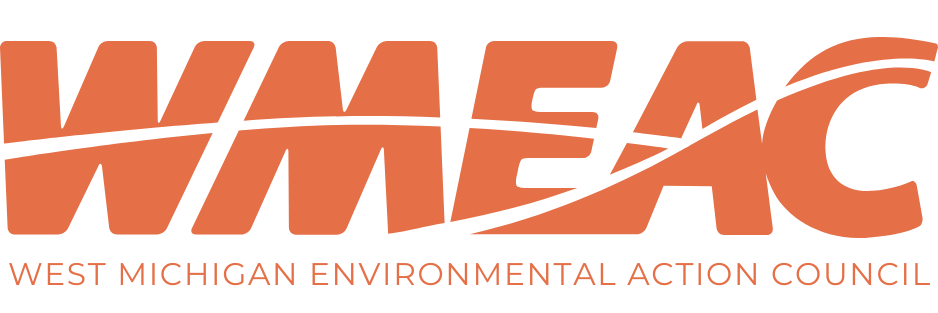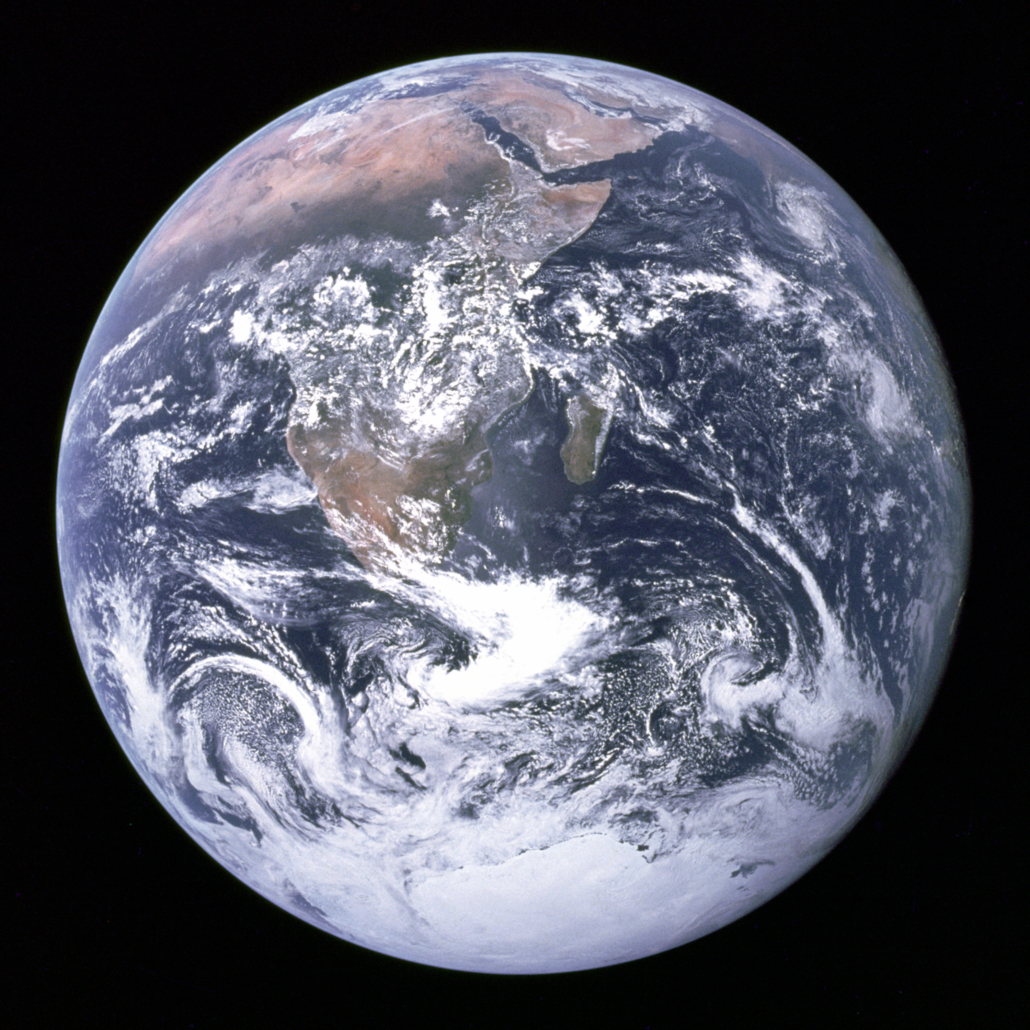Written By Gregory Manni
During a time of dire importance for the planet, Earth Day’s 50th anniversary has fallen under strange and trying circumstances. An expected 1 billion people were set to attend events, protests, and clean-ups around the world the week of April 22, but most of those events have been canceled.
Don’t worry—there are still plenty of ways to take action from home. But before we discuss what’s happening for Earth Day this year, we want to celebrate the legacy that was founded in those early years of environmental activism, back during the time of the first Earth Day.
WMEAC’s First Earth Day
It was 1970, and WMEAC was two years old. Activist Joan Wolfe had founded the West Michigan Environmental Action Council by bringing together a coalition of diverse associations who were concerned about the state of the environment and the government’s lack of environmental regulation. The coalition included churches, businesses, parent teacher groups, men and women’s groups, students, labor associations, and conservation organizations—and together, they were already making waves.
In the years and months leading up to the first Earth Day, Wolfe, with WMEAC at her back, had influenced major legislation that would prepare the nation for widespread organizing on behalf of the environment. In early 1969, Wolfe testified on the passing of the National Environmental Policy Act with more than one hundred other witnesses, according to the Environmental Justice HistoryLab at the University of Michigan. The bill would trigger the creation of the U.S. Environmental Protection Agency, and go on to make an international impact.
In a 1969 letter written by Wolfe, WMEAC also proposed an environmental bill for the state of Michigan, which would give citizens the power to sue corporations for environmental harm. With mounting support, this bill, the Michigan Environmental Protection Act (MEPA), appeared before the state legislature in a series of hearings.
“Everybody in this room knows—unless he has hypnotized himself—that we are not moving fast enough,” Wolfe testified during a MEPA hearing, according to the Environmental Justice HistoryLab. “Most of us are unpaid volunteers who are naive politically…But we are now convinced that both the quality of life, and life itself, is endangered; that our children are being denied life, liberty and the pursuit of happiness, and we will no longer stand for words and public relations in place of deeds.”
Only months after the first Earth Day, the bill passed. It gave immense strength to citizens during a critical moment of environmental awareness, and together with the many other accomplishments of Wolfe and WMEAC in those days, it has left a legacy worth celebrating.
But we know, from the familiar sound of Wolfe’s testimony—there is still much work to be done.
Earth Day 50 at WMEAC—The Virtual Blue Tie Ball
Though most Earth Day activities are canceled this year, it will be a busy day for WMEAC. That’s because this Earth Day, WMEAC is kicking off its 7th annual Blue Tie Ball fundraiser. Due to the coronavirus pandemic, we’re going digital.
The Virtual Blue Tie Ball will stretch from April 22 to April 25, and will include speakers, an online auction, and a prize drawing for ticket holders. This is one of the most important events of the year at WMEAC, because it helps raise funds for our water protection and advocacy programs.
All donations made during the Virtual Blue Tie Ball will directly support our:
- Education programs in schools, like Teach for the Watershed, and Rain Barrel and Green Infrastructure workshops in the community
- Advocacy to state and federal legislators, and our work on sustainable, green policies with our partners and municipalities
- Response to emerging water issues, like the proposed Grand River dredging and PFAS
The four-day event is completely open to the public, and can be found online by following WMEAC on Facebook, Twitter, or Instagram. Buy a ticket or peruse the online auction at wmeac.org/bluetieball.
How to Get Involved Under Lockdown This Earth Day
A majority of people around the world will be stuck indoors on April 22, but there are still several ways to participate in Earth Day activities, whether you are plugging in to the global movement, or simply educating yourself and considering your own impact.
However you decide to take action, remember: Earth Day won’t matter if your effort is confined to a single day. To build massive change, it will take sustained, repeated action from all of us. As we often say at WMEAC, “Every day is Earth Day.”
Ways to participate online:
- Use your digital voice on social media to send important environmental messages to your community
- Brush up on the state of the environment and climate by reading news from reputable sources around the web—then educate your friends and family members
(Check out NPR Environmental News) - Increase the power of major Earth Day campaigns by sharing them online
(Check out Earth Day Network’s social media toolkit) - Attend Earth Day Live, a three-day livestream organized by the US Climate Strike Coalition and Stop The Money Pipeline Coalition, featuring activists, artists, and environmental leaders
Prepare for action after the end of quarantine:
- Use your voting power on behalf of the Earth—learn what the presidential, congressional, and judicial candidates are doing for the environment, and get ready to vote in August and November
(Register to vote, then check out the 2020 Congressional Candidates) - Vote with your dollar—focus on goods and services that have a positive influence on people and the planet
- Sign up for an environmental group in your community that fits your passion for protecting the Earth, such as Michigan Climate Action Network, Extinction Rebellion, Sierra Club, and especially, WMEAC
- If you are a student, consider joining a coalition on your campus next semester, or joining a youth-led organization, such as Sunrise Movement or Youth Climate Strike
Consider changing an aspect of your life to benefit the Earth. Think about:
- Reducing the waste you produce, and finding better ways to take care of that waste—reuse, recycle, and purchase less plastic; try composting your food scraps
- More sustainable food choices—try going vegetarian for a week; buy your produce from a local farmer
- More sustainable modes of travel—walk or bike to your next gathering when lockdowns are over; take a train instead of a plane
Consider making a donation:
Join us for the Virtual Blue Tie Ball, starting April 22, and support WMEAC with a donation. Every penny will go to our water infrastructure and advocacy projects throughout the next year. Or, donate to other environmental organizations that are working hard to protect the planet!
Thanks to Matthew Lassiter and the Environmental Justice HistoryLab at the University of Michigan for their resources on historical activism in Michigan.
Featured Image: Blue Marble Image of the Earth From Apollo 17, NASA, https://www.nasa.gov/content/blue-marble-image-of-the-earth-from-apollo-17


